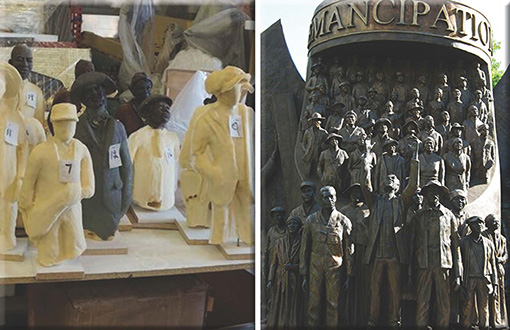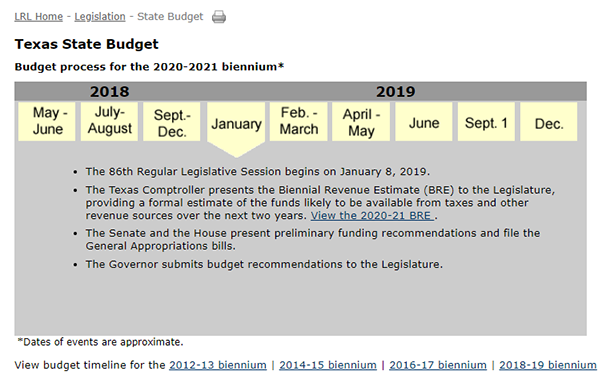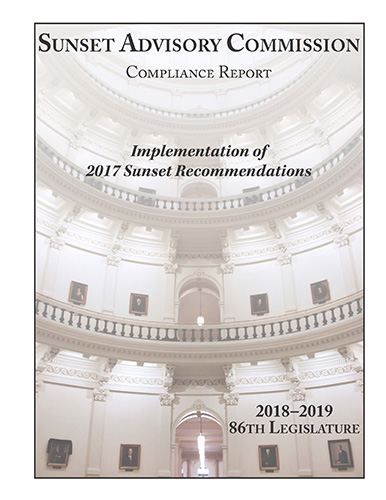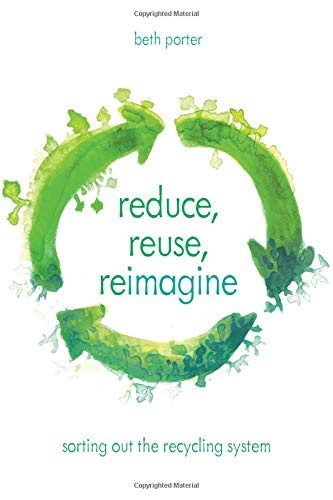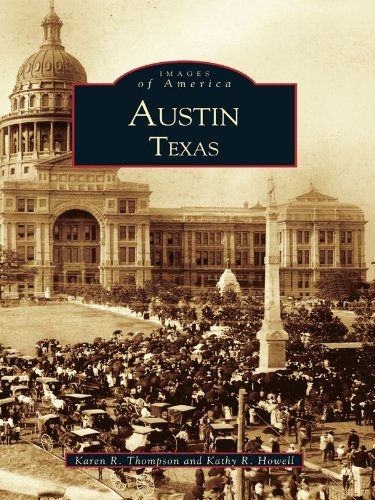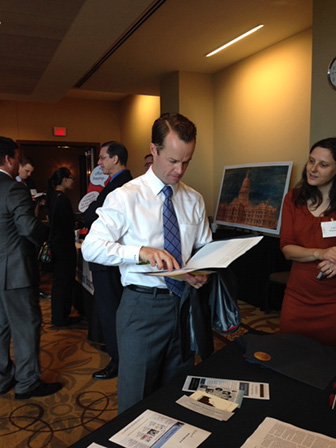In this weekly post, we feature helpful research tools and recent articles of interest to the legislative community.
- Explore the economic outlook for the United States. (Congressional Budget Office, January 2019)
- Examine characteristics of federal executive agencies. (Administrative Conference of the United States, December 20, 2018)
- Find details on equalized funding elements of the Foundation School Program. (Legislative Budget Board, January 2019)
- Consider state laws related to online privacy. (National Conference of State Legislatures, January 7, 2019)
- "Pell grants for prisoners would yield 'cascade' of benefits, advocates say." By Emma Pettit. Chronicle of Higher Education, January 25, 2019, p. A28.
Discusses the 1994 ban of prisoners receiving Pell Grants and efforts since to reestablish this path to higher education for the prison population. Highlights findings of a recent report on the topic: Investing in Futures: Economic and Fiscal Benefits of Postsecondary Education in Prison. - "Early education: Young Americans." Economist, January 26th-February 1st, 2019, pp. 23-24.
Reports more politicians from both parties are recognizing the importance of quality early education programs. Praises San Antonio's program, Pre-K 4 SA, of full-day preschool for four-year-olds. - "Texas school finance: Doing the math on the state's biggest expenditure." Fiscal Notes, January 2019, pp. 1-24.
Presents a special edition on the history and intricacies of Texas' school finance system, including formulas, school finance litigation, the Foundation School Program, school funding sources, and school finance cost drivers and state/local shares. - "Rule would let companies deny many workers in Texas employment benefits." By Ed Sills and AFL-CIO. Internet Resource, January 10, 2019, p. 1.
Argues that a proposed regulation by the Texas Workforce Commission exceeds their rule-making authority by changing the definition of "employee," allowing them to be called "marketplace contractors" in a digital network business. Suggests this re-definition should be considered by the legislature. - "College affordability update: Value, price, and choice in U.S. higher education." By Beth Akers, Kim Dancy, and Jason Delisle. Issue Brief (Manhattan Institute), January 8, 2019, pp. 1-8.
Updates an earlier analysis of college affordability using the most recent data from the National Postsecondary Student Aid Study. - "Making way (hopefully) for 5G." By Thomas M. Lenard and Lawrence J. White. Milken Institute Review, First Quarter 2019, pp. 28-35.
Explores regulatory issues with the next generation of wireless technologies, collectively known as "5G" infrastructure, and the need for federal agencies to expand the "spectrum" dedicated to wireless communications. - "How state-level Child Care Development Fund policies may shape access and utilization among Hispanic families." By Lisa A. Gennetian, Julia Mendez, and Zoelene Hill. National Research Center on Hispanic Children & Families, January 2019, pp. 1-9.
Discusses the Child Care and Development Fund [CCDF], a federal-state child care financial assistance partnership. Details how 13 states, including Texas, implement eligibility requirements, household and work documentation requirements, prioritization of TANF recipients, and availability of program information online in Spanish. - "Mr. 2012." National Review, January 28, 2019, pp. 16-18.
Considers the presidential candidacy of Julián Castro, stating he may be one of the youngest and the only Latino in a crowded Democratic field. Comments that initially he has not inspired broad support and his experience may not be suited to this election. - "Marijuana reform on the way?" By Kimberly Reeves. San Antonio Business Journal, January 18, 2019, p. 18.
Presents the efforts in Texas to decriminalize marijuana use under certain circumstances. Points out the tax savings and tax revenues in other states that have legalized medical and recreational marijuana use. - "Top ten issues to watch in 2019." By Julie Lays. State Legislatures, January/February 2019, pp. 10-15.
Summarizes the top ten pressing issues that will dominate state legislative agendas in 2019. Provides lists of runner-up issues of concern as well as state issues with a federal component. - "¿Mi casa es su casa? Restrictive covenants and short-term rentals." By Rusty Adams. Tierra Grande, January 2019, pp. 24-25.
Reports on the 2018 Texas Supreme Court ruling in Tarr v. Timberwood Park Owners Association Inc., a case that addresses restrictive covenants and short term-term rentals. Includes discussion on what the court did not say.

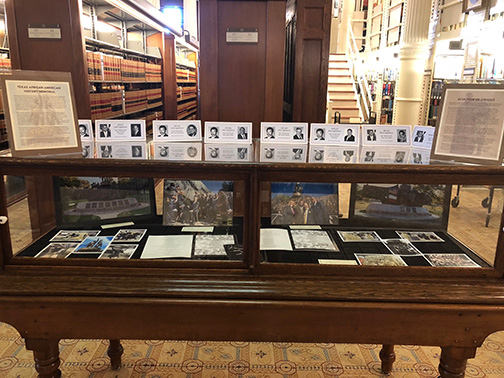 Entering the Capitol grounds from the south, one of the first monuments visitors see is the Texas African American History Memorial. Unveiled on November 19, 2016, the monument commemorates African American Texans and their contributions to the history and evolution of the Lone Star State.
Entering the Capitol grounds from the south, one of the first monuments visitors see is the Texas African American History Memorial. Unveiled on November 19, 2016, the monument commemorates African American Texans and their contributions to the history and evolution of the Lone Star State. 